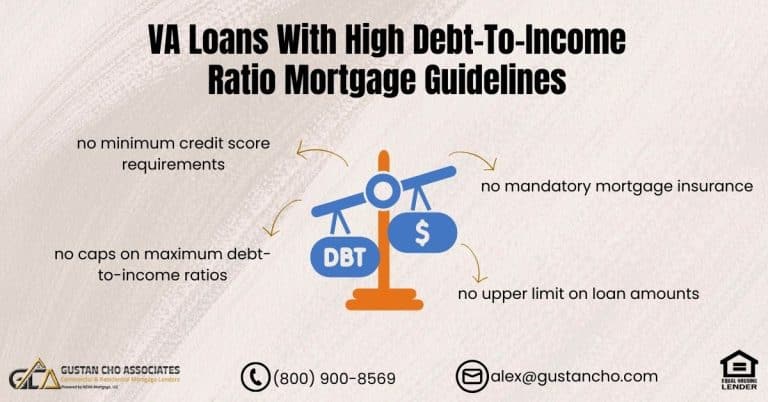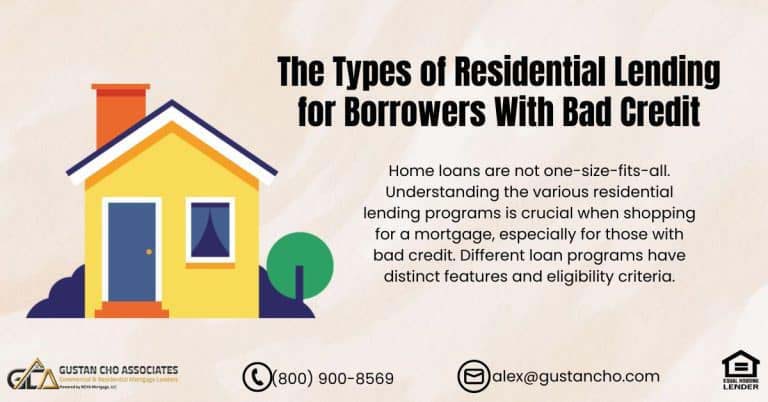In this guide, we will cover a comprehensive look at 100% unsecured business loans for small business owners and entrepreneurs. Small business owners and entrepreneurs often face significant challenges when securing the funds they need to start or expand their businesses. Traditional financing methods, such as bank loans, frequently require collateral—valuable assets like property or equipment as security. Dustin Dumestre, President and CEO of F1 Lenders, Inc. is a business, commercial, and residential mortgage advisor and says the following about the unsecured business loans F1 Lenders offers:
100% unsecured business loans for small owners is a bridge loan program based on the bank deposits of the small business. There is no income docs, no collateral, and no credit scores required. Funding can be as fast as two weeks.
However, not all business owners have access to such assets, which is where a 100% unsecured business loan comes in as an appealing option. These loans don’t require collateral, offering an alternative solution for business owners who need financing without risking their assets. In this article, we’ll cover what 100% unsecured business loans are, how they work, the pros and cons, and how to decide if this loan type suits your business needs.
What Are 100% Unsecured Business Loans?
A 100% unsecured business loan is a financing option that does not require the borrower to put up collateral. In contrast to secured loans, which are backed by assets like real estate or machinery, unsecured loans rely solely on the borrower’s creditworthiness and business performance. Lenders consider factors such as credit score, business revenue, and financial history to assess the risk of lending. Since there’s no collateral, the lender takes on more risk, which typically results in higher interest rates and stricter approval criteria. Also, there is no red tape with unsecured business loans. No income tax returns, no financials, and no red tape. Unsecured business loans is underwritten based on the small business’ bank statement deposits.
Looking for 100% Unsecured Business Financing? We’ve Got You Covered!
Contact us today to learn how you can qualify for 100% unsecured business loans and secure the funding you need to grow your business.
How Do Unsecured Business Loans Work?
Unlike secured loans that involve assets, unsecured business loans depend on other key factors:
- Credit Score: Both personal and business credit scores play a major role in loan approval. Strong credit increases the likelihood of approval and access to more favorable terms. There are unsecured business loans without a credit score requirement as well.
- Revenue and Cash Flow: Lenders want to ensure the business generates enough revenue to meet loan repayment obligations. They typically assess cash flow to determine the business’s financial health.
- Business Longevity: The benefit of our unsecured business loans is there are two types. The first type of unsecured business loans are loans for start-ups as well as unsecured business loans for an existing small business. While newer businesses can apply, lenders tend to favor businesses that have been operational for at least six months to a year.
The application process for unsecured loans is often faster than that for secured loans. Many lenders, particularly online platforms, offer streamlined applications with approval decisions within a few days. This makes unsecured loans an attractive option for businesses that require quick access to capital.
Types of Unsecured Business Loans
Several types of unsecured business loans can meet different business needs. Below are some common options:
- Business Line of Credit: This type of financing offers flexibility by providing access to a set amount of funds that you can draw from as needed. You only pay interest on the amount used, making it ideal for managing cash flow or covering unexpected expenses.
- Term Loans: Term loans provide a lump sum upfront that is repaid in fixed monthly payments over a specific period. These loans are commonly used for larger, one-time purchases like equipment or business expansion.
- Merchant Cash Advances: A merchant cash advance allows a business to receive a lump sum in exchange for a percentage of future sales. It’s a quicker option, but often comes with higher costs.
- Invoice Financing: This allows businesses to borrow money based on unpaid invoices. It’s a great option for businesses waiting on client payments, and the loan is repaid when the invoices are settled.
- Business Credit Cards: Functioning similarly to personal credit cards, business credit cards provide revolving credit. While convenient, they often come with higher interest rates.
Pros of 100% Unsecured Business Loans
Unsecured business loans offer several benefits, especially for business owners who don’t want to risk personal or business assets:
- No Collateral Needed: One of the primary advantages is the lack of collateral, which means business owners don’t risk losing property or other valuable assets if they can’t repay the loan.
- Faster Approval: Since there’s no need to evaluate collateral, the approval process is usually quicker. Some lenders offer funding within days, which can be a crucial advantage for businesses needing immediate capital.
- Less Paperwork: Without the need to document and appraise assets, the process involves less documentation, streamlining the application.
- Flexible Use of Funds: Unlike some secured loans that come with restrictions, unsecured loans typically offer more flexibility in how the funds can be used, such as for marketing, purchasing inventory, or hiring staff.
Cons of 100% Unsecured Business Loans
While these loans have clear advantages, there are also downsides to consider:
- Higher Interest Rates: Due to the higher risk for lenders, unsecured loans typically carry higher interest rates compared to secured loans. This means you may end up paying more over time.
- Smaller Loan Amounts: Unsecured loans usually come with lower limits than secured loans, which may not meet the needs of businesses looking for significant funding.
- Stricter Eligibility: Lenders often require a solid credit score, steady business revenue, and a proven track record. For newer businesses or those with low credit, securing an unsecured loan can be challenging.
- Shorter Repayment Terms: Unsecured loans tend to have shorter repayment periods, which means higher monthly payments. This can create a financial strain on businesses with tight cash flow.
Ready to Grow Your Business? Get Approved for a 100% Unsecured Business Loan!
Contact us today to find out how you can qualify for a 100% unsecured business loan to support your business expansion.
Is a 100% Unsecured Business Loan Right for Your Business?
Determining whether an unsecured business loan is right for you depends on several factors. Here are some important considerations:
- Your Credit Score: Since creditworthiness is a key factor, having strong personal and business credit increases your chances of approval and may help you secure better interest rates.
- Business Revenue: Lenders will assess your revenue and cash flow, so it’s important to have consistent earnings to prove your ability to repay the loan.
- Urgency of Funds: If you need quick access to capital and can manage higher interest rates, an unsecured loan might be a suitable solution.
- Comfort with Higher Interest Rates: Unsecured loans often come with higher interest rates, so it’s crucial to calculate the cost of borrowing and determine if your business can handle the payments without jeopardizing operations.
A 100% unsecured business loan provides entrepreneurs with an opportunity to access capital without putting their assets at risk. While these loans offer flexibility and faster funding, they also come with challenges, such as higher interest rates and stricter eligibility requirements. Before applying, it’s essential to evaluate your business’s financial health, creditworthiness, and cash flow to ensure this type of loan aligns with your needs. Carefully weighing the pros and cons will help you decide if an unsecured business loan is the right fit for fueling your business growth. Always explore multiple options and compare terms to find the best solution for your company’s financial future.
FAQs on Unsecured Business Loans for Small Businesses
This section looks into some of the most common questions that people have regarding unsecured business loans targeting small enterprises:
What Are Unsecured Business Loans?
An unsecured business loan is a way of raising finance in which the borrower does not have to pledge any assets to secure the loan. Rather than securing the loan with collateral such as real estate or inventory, lenders focus on the credit and financial status of the business and its owners.
Who Can Qualify For Unsecured Business Loans?
On average, businesses looking to qualify for an unsecured business loan will require the scope of work of the small business, years in business, and monthly bank deposits over six or more months.
Credit Score (in most cases, over six hundred): Minimum time in business (often at least six months to two years). Mutual revenue/cash flow that guarantees repayment of the loan. However, lending institutions have different highlight criteria.
How Much Can I Borrow With an Unsecured Business Loan?
The procedures for obtaining an unsecured business loan are less drawn out than those for other types of funding. So, borrowers will usually ask for loan sums in the range of $20,000 to well over $500,000, depending on the lender, the business’s financials, and the credit history of the owners(s).
What Are the Average Interest Rates Related to Unsecured Business Loans?
Unsecured business loan interest rates are higher than secured loans. This is because they are high-risk and fall under collateral-free options. The acceptable ranges may start from 5% to over 20%. Again, a lot will depend on the lender, the borrower’s credit history, and the repayment duration of the loan.
What Are the Advantages of Unsecured Business Loans?
- No Collateral: Borrowers will not raise the risk of losing valuable assets as they are in default.
- Approval Faster: The need to appraise the collateral type makes these loans take less time to process, as it sometimes takes only a few days.
- Free Use of the Loan: Such loans can be taken for any purpose, including, but not limited to, working capital, purchasing equipment, promoting one’s business, and growing it.
What Are the Disadvantages of Unsecured Business Loans?
- Interest Rates Higher: Unsecured loans have no collateral; extra charges increase the rates.
- Qualification Criteria Strictures: Stringent measures, such as higher credit scores and stronger cash flow, may compensate for the lack of collateral.
- Reduction in Loan Amounts: Loans without security features will have a lower ceiling on how much can be borrowed than their secured counterparts.
How Quickly Can I Secure Unsecured Business Loans?
Usually, the application processing takes less time than when the borrower has to provide collateral. Certain lenders tend towards one-day or same-day approval, meaning within one or a few days, a client can have access to funds. Several factors will affect the exact time range, and these include the lender, how complex your application is, and how fast you are able to present all the required documents.
How Long Do You Have to Repay an Unsecured Business Loan?
The repayment term is inversely proportional to the amount of the loan and the loan provider. For instance, unsecured business loans usually have a shorter period, between six months and five years. Because short terms mean high monthly payments, it is recommended that the term satisfy the business’s cash flow requirements.
Can I Obtain an Unsecured Business Loan if I Have Bad Credit?
It can be, but the bad credit will come into question. Some lenders deal with these kinds of businesses, but such loans are often short-term, with high interest rates and low loan amounts. Some lenders would give poor-credit business loans. However, the rates will be higher, and other terms will not be favorable unless one raises one’s score.
Section 10
- What documents are required to apply for an unsecured business loan?
- What business records would be submitted with the tax returns (often, income tax returns are not required)?
- Considering business purposes, what documents would you present?
While Documentation Requirements Will More Than Likely Differ: General Documents Include:
- Business financials (documents like income statements and balance sheets are normally only required if the business owner goes for a large unsecured business loan).
- Bank records (usually the last 3 to 6 months).
- Tax returns, if applicable (individual & business).
- A business proposal (mostly required for new businesses).
- Credit bureaus (personal & business)
Section 11. What Are Alternatives to Unsecured Business Loans?
For other reasons, if you do not meet the eligibility criteria for an unsecured business loan, other alternatives are available.
Alternatives to Unsecured Business Loans
Consider:
- Secured business loans: Business loans are backed up with collateral but have lower interest rates.
- Revolving business credit: A way to borrow funds from lenders, usually not secured by assets.
- Invoice loans: A way to borrow money based on money receivable.
- A comparison in advance of merchant cash: An advance against credit card sales—although the fees often exceed what is acceptable.
Section 12
How do I choose the right lender for an unsecured business loan?
Consider the Following When Choosing a Lender.
- Interest Rates: The interest rates must be ratified on each loan so that the borrower does not incur unnecessary costs.
- Loan Terms: Check if the loan’s maturity corresponds to your business’s cash flow pattern.
- Fees: Some lenders charge unusual fees, such as origination points on the borrowed amount, early pay-out, and servicing fees.
- Reputation: It is vital to review lenders’ and clients’ feedback on the specific lender you want to use to avoid working with pseudolenders.
Nevertheless, unsecured business loans may be appropriate for certain small businesses. This is especially those that require quick access to outside funds if assets are not required to be pledged. However, as a borrower, you need to read the fine print of the loan—the terms, rates, and repayment obligations. Identifying your business’s financial position and seeking out other sources of loans can assist you in making the right decision for your business.
If you need more information, it would be appropriate to help these individuals consult financial experts or contact financing institutions offering unsecured business loans directly. F1 Lenders, through Lending Network, Inc., offers unsecured business loans in all 50 states.
Looking for 100% Unsecured Business Financing? Let’s Make It Happen!
Reach out today to learn more about how we can help fund your business.








